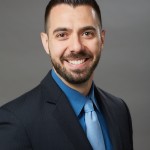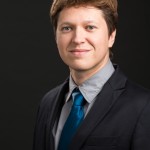History
The Yale AIDS Clinical Trials Program began in 1992 with the receipt of a large grant from the NIH to establish an AIDS Clinical Trials Unit (ACTU) as part of the ACTG trials network. Yale was subsequently awarded an NIH Clinical Program for Community Research in AIDS (CPCRA) grant which enabled the establishment of New England ProACT (Programs for AIDS Clinical Trials), a regional clinical research collaborative consisting of sites in Connecticut and Massachusetts.
The Program has also received an NIH RO1 grant specifically directed at performing pharmacokinetic and pharmacodynamic drug interaction studies. In addition to these federally funded programs, the Yale Clinical Trials Program has been awarded dozens of single site investigator initiated studies and multiple-site grants from industry sources. Since 1992, the clinical trials program has enrolled 1,658 patients in 107 separate phase I-IV trials.
Program Staff
Dr Gerald Friedland served as the Director of the AIDS Clinical Trials Program and PI on NIH grants from its inception to 2008. Dr Michael Kozal assumed the role of Associate Director, 2005-2009 and became Director of the Yale HIV Clinical Trials Program from 2009-2017. Both Dr Friedland (past) and Dr Kozal (currently) have been members of DHHS/NIH Panel on Antiretroviral Guidelines for Adults and Adolescents, the national body that provides guidelines on the use of antiretroviral therapy.
This year, Dr Onyema Ogbuagu has been appointed as the third and now current Director of the AIDS Clinical Trials Program. Other AIDS Program faculty involved in the program over time have included include Drs Liz Cooney, Doug Bruce, Rick Altice, Brinda Emu as well as a substantial number of ID fellows.
- Gerald Friedland
- Michael Kozal
- Onyema Ogbuagu
The program has had the benefit of the longstanding contributions of both expert and essential staff including:

Laurie Andrews RN MPH | Program Manager
Cyndi Frank RN PhD | Clinical Research Nurse (not pictured above)
Jackie Baron | Regulatory Coordinator
Suzie Mutic | Research Assistant
Clinical Trials
Research in The Yale AIDS Clinical Trials Program is patient oriented and has focused on under served and vulnerable populations locally, nationally and at the international level. The ACTG trials involved study of multiple new antiretroviral drugs and regimens. The studies conducted through the CPCRA network have primarily been large clinical outcome randomized control strategy trials, designed to determine the most appropriate and beneficial use of currently available antiretroviral therapy. These have included the FIRST study, comparing 3 different approaches to initial treatment for HIV, the MDR study, comparing ongoing treatment to a strategic treatment interruption in patients with multiple drug resistant HIV, the SMART study, addressing the issue of antiretroviral stopping “or drug holidays” and the most recent and impactful START study, an international collaborative effort to compare viral suppression, regardless of CD4 to a medication conservation strategy, based on CD4 count.
This trial has provided the needed RCT evidence that antiretroviral therapy is of significant benefit at all CD4 cell counts, resulting in the current national and global recommendation of providing ART to all people living with HIV, regardless of CD4 cell count. The Yale AIDS Program has also made significant contributions to these NIH trials networks in a series of studies of antiretroviral resistance and ultra deep sequencing (Kozal) and medication adherence (Friedland and Andrews)
In addition, a particular strength of the program has been the performance of pharmacokinetic and pharmacodynamic studies of drug interactions between antiretroviral therapies and drugs used to treat substance use (methadone and buprenorphine) and TB and HCV infection (Friedland, Bruce and Altice). In doing this work, in addition to developing and implementing treatment protocols, we have been one of the few academic clinical research centers in the country able to conduct and successfully complete such studies in people who inject drugs.
This work has been supported by an RO1 grant from National Institute on Drug Abuse (NIDA) and multiple industry sources. Further, Dr Kozal has been responsible for attracting large numbers of interesting and exciting studies of new classes of antiretrovirals from industry sources including, Yale investigator initiated studies, participation in multi-site trials and most recently the only regional site to study Maturation Inhibitors, Attachment Inhibitors and perform monoclonal antibody trials.
The Clinical Trials Program, under Dr Ogbuagu’ s direction continues to encourage and support industry, research foundations and government trials and Yale-based independent investigators conducting basic science and clinical research within the Yale HIV clinics and Yale-New Haven Health system.
Trials Active Enrolling
- CytoDyn PRO 140 Monotherapy for the chronic suppression of CCR5-tropic HIV infection (PI-Ogbuagu)
- Randomized Trial to Prevent Vascular Events in HIV – REPRIEVE (A5332): NIAID/NHLBI (PI-Kozal)
- A Multi-center, Randomized, Double-blind, Placebo-controlled Trial, Followed by Single-arm Treatment of PRO 140 (humanized monoclonal antibody to CCR5) in Combination With Optimized Background Therapy in Treatment-Experienced HIV-1 Subjects. (PI-Ogbuagu)
- Protocol TMB-311 study – A Phase 3, Multicenter Expanded Access Study of Ibalizumab Plus an Optimized Background Regimen (OBR) in Treatment-Experienced Patients Infected with Multi-Drug Resistant (MDR) HIV-1. (PI- Emu)
Ongoing Trials – closed to enrollment
- Comparison of Truvada vs Descovy for PrEP in HIV negative gay men or transgendered women. GS-US-412-2055 (PI-Ogbuagu)
- Strategic Timing of AntiRetroviral Treatment (START) INSIGHT PROTOCOL: NIAID (PI- Friedland)
- BMS AI438-047: A Multi-Arm Phase 3 Trial of BMS-663068 (Attachment Inhibitor) in Heavily Experienced HIV-1 Subjects with MDR HIV (PI- Kozal)
- MERK-Edge: A Phase III Clinical Trial of MK-5172 + MK-8742 in Subjects with Chronic HCV GT1, GT4 and GT6 infection who are on Opiate Substitution Therapy. HIV+ or Negative (PI-Altice)
Ongoing Trials that will be completed in 2017
- GS-US-366-1216: A Phase 3b, Randomized, Double-Blind Switch Study to Evaluate the Safety and Efficacy of Emtricitabine/Rilpivirine/Tenofovir Alafenamide (FTC/RPV/TAF) Fixed Dose Combination (FDC) in HIV-1 Positive Subjects who are Virologically Suppressed on Emtricitabine/Rilpivirine/Tenofovir Disoproxil Fumarate (FTC/RPV/TDF) (PI- Kozal)
- GS-US-366-1160: A Phase 3b, Randomized, Double-Blind Study to Evaluate Switching from a Regimen Consisting of Efavirenz/Emtricitabine/Tenofovir Disoproxil Fumarate (EFV/FTC/TDF) Fixed Dose Combination (FDC) to Emtricitabine/Rilpivirine/ Tenofovir Alafenamide (FTC/RPV/TAF) FDC in Virologically-Suppressed, HIV-1 Infected Subjects. (PI- Kozal)
For information about Clinical Trials and Enrollment:
Laurie Andrews, RN, MPH | Phone: 203-785-3557
Cyndi Frank RN, PhD | Phone: 203 785-6939































